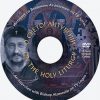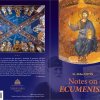The Divine Liturgy is at the center of Orthodox Christian life. It is through the Eucharist that the faithful are united with Christ and therefore with one another. Every Eucharistic gathering is an image and a reality of the Heavenly Liturgy, i.e. unceasing Synaxis of angels and saints around God’s throne. Thus the Liturgy is the proclamation of and a real image of God’s Kingdom in this world.
In this television interview conducted by the Logos, a renowned Orthodox theologian and retired Bishop of Zahumlje and Hercegovina, his Grace Atanasije, brings forth these essential points citing historical development of the Liturgies bringing to light the present misunderstanding of certain Liturgical actions and movements.
Bishop Atanasije aptly points out the necessity for Liturgical renewal, i.e. moving away from passive liturgical attendance to active participation and immersion of the soul and body into a full communion with Christ.
.Remote differences in movements and actions, unimportant and changeable details in serving the Holy Heavenly Mystery of the Eucharist do not represent “departure from the True Faith”, since it has been like that from the beginning, it is and it will continue to be; just as there is One Gospel, but four Gospels! One but actually more Liturgies. One in essence but many different Typicons of the monasteries and parishes.
It is the precise time (kairos) for Liturgical renewal as it is established by the Catholic and Apostolic Faith and therefore a fuller communion with Christ and our ascent into the heights of God’s Kingdom here and now.
His Grace Bishop Atanasije is calling for a deeper understanding, experience and living of the Apostolic Faith and Liturgical life deposited in the Church of Christ, the Orthodox Church.





